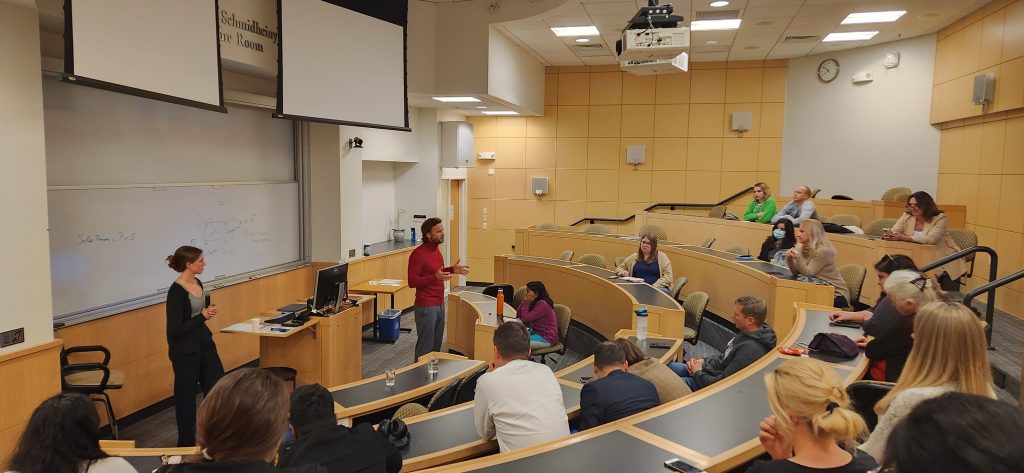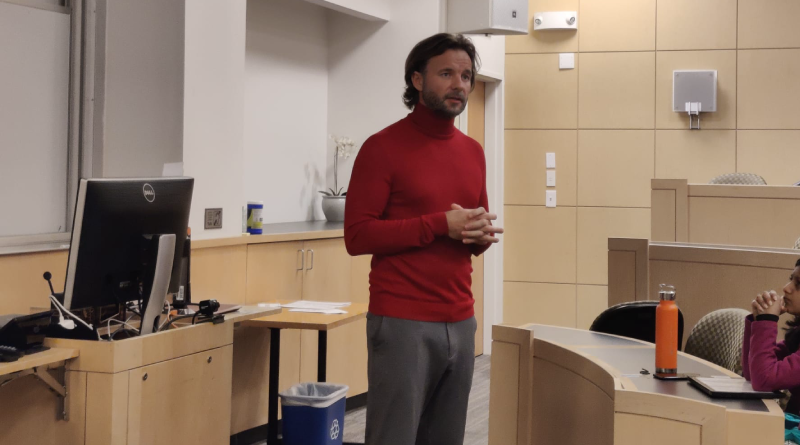Vitali Shkliarov on the High Cost of Revolution in Eurasia
By Vishal Manve, MALD 2023 Candidate, The Fletcher School of Law and Diplomacy
The first scenes of the movie “Minsk” (2022), produced by Vitali Shkliarov and directed by Boris Guts, hits the audience’s emotions hard. The movie lulls the audience into a sense of complacency as a young married couple, Yulia and Pasha, talk about their future and having a baby, and have some moments of intense joyful argument.
But within the first few minutes, the political realities of Belarus are laid bare. The police brutality against protestors is shown in graphic detail, leaving the audience wanting to turn away from the horror.
In a post-screening Q&A led by Grace Spalding-Fecher from Tufts University, Shkliarov explained how the movie documented the Belarusian protests in August 2020 and was shot in Tallinn, Estonia, as the city closely resembled Minsk.
“The 2020 protests signified one of the most successful and inspirational protests that Eastern Europe had seen, and this was led by people freely and had no leadership. This was a street-level, people-led protest,” he added.
Shkliarov was jailed in Belarus and met Belarusian Prime Minister Alexander Lukashenko. He spent four months in jail and was tortured during that time. He used the film to illustrate the horrific situation protestors and innocent civilians were put through during the brutal crackdown.
The protests began on May 24, 2020, when Belarusian President Alexander Lukashenko announced his decision to run in the presidential election, resulting in anti-government rallies.

“We did not succeed with the protests because all the changes that [Lukashenko] made were still there and now are a part of the devastating war against Ukraine,” Shkliarov further said.
He added how the protests were a prime example for history books and political studies on the “progress of grassroots activism and technology, particularly Telegram chats and different tools to organize people.”
Shkliarov stated that the team has faced multiple challenges with funding for a movie screening, but would have a small premiere in Estonia. It will also be screened at film festivals. He further explained the reason for shooting the entire movie in a single shot, despite technical difficulties and budgetary concerns, among other issues.
“We started shooting and did not shut the camera down until the last scene. This was basically to give this feeling that you come out of a warm, cozy, familiar house on the street and get thrown into something chaotic and dangerous suddenly. We wanted to capture that,” Shkliarov concluded.
The event was introduced by Alexander Thomas, head of the Fletcher Eurasia Club, and was co-hosted by the club and Tufts Amnesty International.

